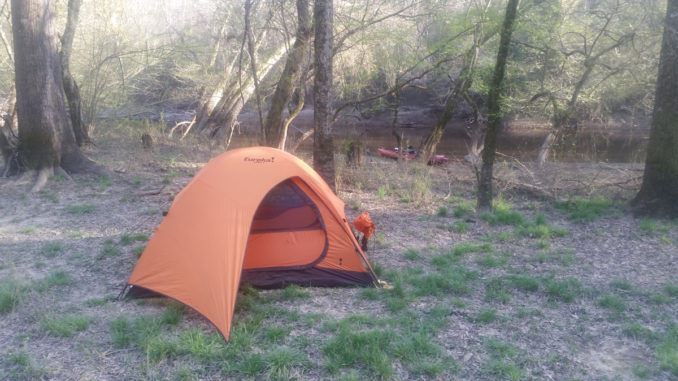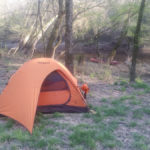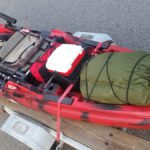
Prepare for everything, then plan some more
The weather was set up for a perfect weekend float down the creek, the days not too hot and the nights not too cold. The time had come.
Overnight float trips take a little more planning than the average excursion on the water. You have to be prepared for more challenges that may appear along the way.
First, know where you are going and when you expect to be there.
Recently, a group of kayakers planned a week-long trip through Florida’s Everglades. The person organizing the trip had made it several times and was familiar with several of the legs from previous trips.
He put together a map showing the distance to be paddled each day, with alternate camping spots in case they didn’t make the planned locations, which were chosen based on distance and tidal influences. The final spot was a pickup location where a couple of vehicles would be parked. There was also a cellular-coverage map overlay so they could contact outsiders to let them know everyone was safe.
An overnight trip on a river or creek may not need to be planned to that extent, but you if you have someone meeting you at the take-out point, you may want a set time in which the person needs to make contact with authorities if they do not see you or can make contact with you.
Have power for your electronics.
You are running a little behind and need to call your ride or loved one; you check your cell phone, and it is dead. Now, they are in a panic because they can’t contact you and fear the worst. However, the only issue is that you did not conserve power.
I let my wife know on a recent trip that I would have my phone shut off except for certain times of the day when I would call her to check in. This way, I would have enough power to make either an emergency call if needed, and/or call her when it was time for her to come pick me up at the ramp where I would be taking out.
I also carried along one of those small power batteries with a USB plug-in that would give my phone a quick charge in case I did exhaust the power.
Turning off Wi-Fi and GPS and turning down the brightness of the screen helps conserve energy drain as well.
Essentials of life are food, water and shelter.
If you are planning for one night or a week-long float, you have to have food, water and shelter, and this is where weight becomes an issue. Tents, clothing, sleeping bags, food, water and various utensils and cookware all add weight. The longer the trip, the more things you will need to take, and the heavier those things will be.
A small, lightweight tent with a water-resistant carrying bag is best unless there is a large party floating together. For food, compact snacks and easy-to-pack meals fit the bill. You do not want to have something that will leave a lot of waste; cans and plastic or glass bottles will need to be kept in a trash bag. Food that has waste such as bones — chicken, for instance — can attract wild animals overnight, and that’s not what you want in your camping area.
The Boy Scout motto rules.
Be prepared. You have to. Things such as food, extra clothing, electronics, tents and sleeping bags need to be stored in a waterproof location, in a dry-well hatch or a dry bag strapped to your vessel. If you were to turn over or fall in while portaging, you do not want everything else to be wet. Trying to sleep in wet clothes, in a wet tent, on a wet sleeping bag, even in warm weather, will make things miserable, and potentially life-threatening.
Know that if a storm suddenly blows up, not only do you need to find or create cover, you must do so far enough from the river or creek banks to allow for flash -flooding.
Have sources of light with fresh batteries and fire starters that are both accessible and waterproof.
Keep a first-aid kit that provides resources for everything from covering cuts to removing hooks to insect-sting relief and tick removal. Again, you also need a way to keep it waterproof.
The more the merrier.
If you have a party floating and fishing together, you can pool resources for packing. Instead of everyone carrying a tent, one larger tent can be carried by one person, while another may carry the majority of the foods needed for meals.
Planning who has what can keep loads lighter and more balanced. And of course, the tales of the trip can be topics of conversation for years to come.





Be the first to comment